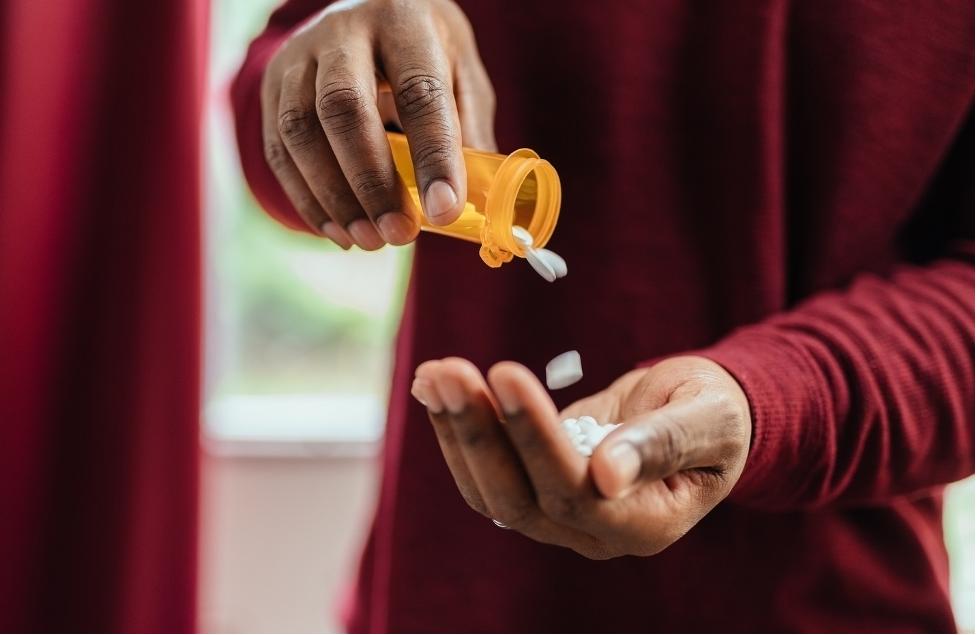The United States is a highly medicated country, and doctors are willing to prescribe medications to help with any ailment or pain. But these medications come with the risk of addiction and dependence. While these medications might be effective in the short term, they can be devastating to your health in a long time. Those patients prescribed narcotics should think twice before using them because there are many other options.
What Is a Narcotic?
Narcotics or opioids are pain medications. They are commonly used to treat severe pain and are usually used when patients need something more substantial than an over-the-counter pain reliever. The most common narcotic pain medications are morphine, codeine, oxycodone, and fentanyl. They also come in many different forms, including patches, pills, liquids, and sprays. Although doctors prescribe them for severe pain, they can cause serious side effects. The Food and Drug Administration (FDA) has approved fentanyl for treating severe breakthrough cancer pain. Different types of narcotic painkillers include some medications that also treat anxiety and difficulty sleeping.
Should I Be Concerned About Addiction If I’ve Been Prescribed Opioids?
Prescription narcotics are potent and do a great job of alleviating pain, making opioids a two-edged sword. Like many other drugs, these medications can be highly addictive. If you're not careful, your body can become dependent on the drug, which will cause withdrawal symptoms if you try to stop taking it. But if you're only taking opioids for a short time, or if you only take the minimum dosage required to address your pain management needs, you might not experience any adverse effects.
The body's ability to produce endorphins is reduced when opioids are used regularly. Opioid usage may eventually stop eliciting such euphoric effects, which would need increasing the dosage to maintain the same ease. A growing body of research shows illicit fentanyl (Actiq, Duragesic, Fentora) may be contaminated with impurities or even more powerful opioids, increasing its destructive potential, which has been linked to an alarmingly high number of overdose fatalities among individuals who use heroin illegally.
If you're concerned that you or a loved one might have become addicted to opioids, seek help by first getting assistance from a physician who can prescribe treatments like rehabilitation programs at medically supervised residential addiction treatment centers to help you combat a substance use disorder that may have developed. This will allow for detoxification, allowing your body to return to normal without feeling any harmful side effects.
Once this process is complete, and you think that you're ready for further treatment, licensed professionals will help you address underlying issues, not the physical pain, like emotional trauma or lack of coping mechanisms that may be responsible for any misuse the narcotics.
How Can I Lower Risk of Addiction to Painkillers?
Prescription painkillers are necessary for many people, and the chances of becoming addicted are about the same as with any other kind of medication. Dependence can develop from long-term use and misuse of prescription drugs, which in some cases can lead to addiction. However, not everyone who has a substance dependency develops a substance use disorder. You may be able to lower your chances of developing a problem with some of these best practices:
-
Take only the amount of medication prescribed.
-
Do not mix it with other substances not approved.
-
Talk to your doctor if your medication is no longer helping with your pain or if you’re taking more than you intended.
-
Familiarize yourself with the signs of addiction and drug abuse.
Symptoms of Opioid Addiction
Everyone reacts to drugs differently. However, these are the most common symptoms and signs of addiction to narcotics as they relate to the body, behavior, mind, and moods:
Mood-related
-
agitation
-
sadness
-
lack of drive
Psychological
-
disorientation
-
mood swings
-
inability to focus
Behavioral
-
slurred or slurred speech
-
loss of interest in once-loved pastimes and activities
-
decreased coordination
-
stealing from family members and friends
-
socially isolated
Physical
-
irritation of the skin
-
diarrhea
-
nausea
-
headaches
-
cramping
-
loss of weight
Non-Narcotic Alternatives for Pain Management
Opioids aren't always the best choice, and some alternatives may be safer and more effective. After using opioids to treat chronic pain, you will need new pain reduction choices if you reduce or stop using opioids. This is not medical advice, but the alternatives listed below, either alone or combined with controlled narcotic use, may help reduce pain.
-
(CBT) is a goal-directed psychological strategy in which patients learn to adjust physical, behavioral, and emotional responses to stress and pain.
-
Lidocaine or other topical ointments
-
Complementary therapies like massages and acupuncture
-
Interventional therapies or corticosteroid injections
-
Physiotherapy and exercise
-
Biofeedback
-
Chiropractic
-
Mind-body techniques like mindfulness and meditation
Chronic pain is a debilitating condition that can leave you in agony and make even the simplest tasks difficult. While there is no cure for chronic pain, there are things you can do to manage the pain and train your body to do something it usually couldn't do. Stay positive and be willing to do what you have to do to survive.
You want to discuss pain management options with your doctors. Depending on the type of pain you are experiencing, you might not need to take opioid medication, or it could be your best option to ease discomfort. If you have been taking prescribed narcotics and have concerns about a possible addiction or dependence, speak with your doctor or a counselor you'll find at an opioid addiction treatment center like Wish Recovery for guidance about some next steps.


